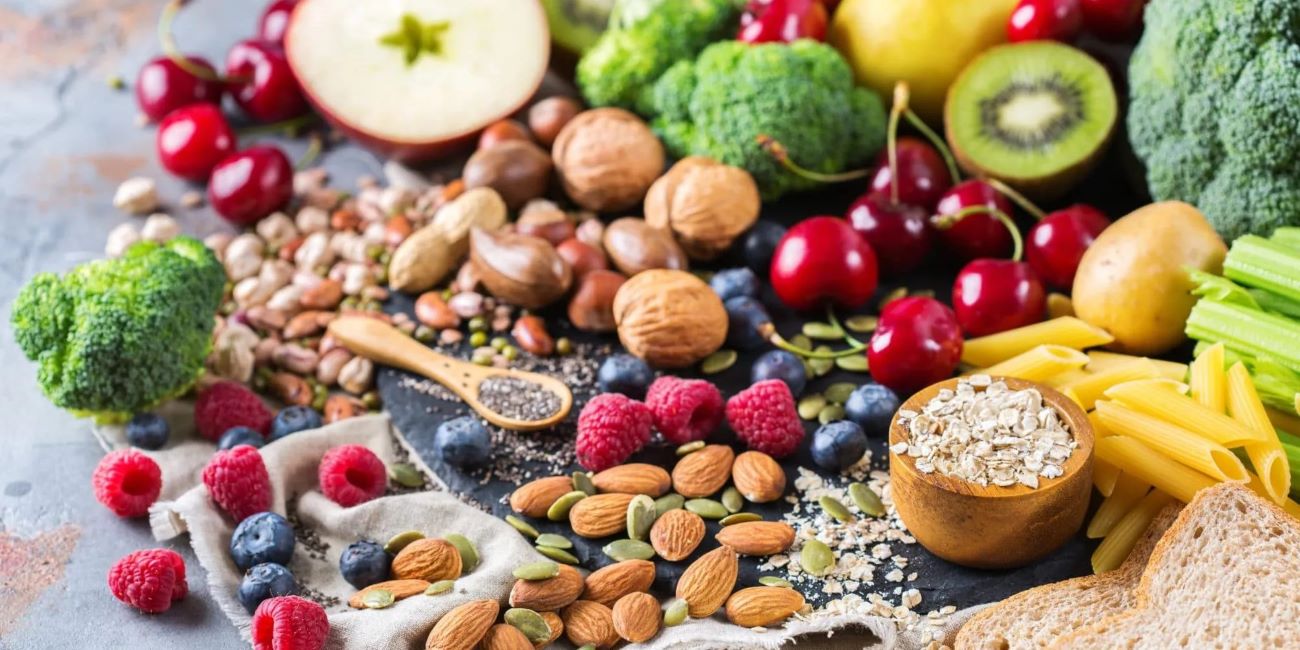Home>Gardening News and Trends>Latest News>Can You Have Rosemary When Pregnant


Latest News
Can You Have Rosemary When Pregnant
Published: January 26, 2024
Find out the latest news on whether it is safe to consume rosemary during pregnancy and get expert advice for a healthy pregnancy.
(Many of the links in this article redirect to a specific reviewed product. Your purchase of these products through affiliate links helps to generate commission for Chicagolandgardening.com, at no extra cost. Learn more)
Table of Contents
Introduction
When it comes to pregnancy, it’s natural for expectant mothers to prioritize their health and safety. The choices they make regarding their diets and lifestyle can directly impact the well-being of both themselves and their developing babies. One such consideration is the consumption of certain herbs and spices during pregnancy, such as rosemary.
Rosemary, with its distinct aroma and flavor, is a popular herb that is often used in culinary dishes and herbal remedies. It is known for its potential health benefits, such as improving digestion, boosting memory, and providing antioxidants. However, expectant mothers may wonder whether it is safe to consume rosemary during pregnancy.
In this article, we will delve into the topic of consuming rosemary when pregnant. We will explore the potential effects of rosemary on pregnancy and discuss the safety concerns associated with its consumption. Additionally, we will provide alternatives to rosemary for those who are looking for flavor-packed options that are perfectly safe for pregnancy.
Please note that while we strive to provide accurate and up-to-date information, it is always recommended to consult with a healthcare professional before making any dietary changes during pregnancy. Every pregnancy is unique, and individual circumstances may vary.
Understanding Rosemary
Rosemary, scientifically known as Rosmarinus officinalis, is a perennial herb that belongs to the mint family. It is native to the Mediterranean region and has been used for centuries in cooking, medicinal remedies, and as an aromatic addition to beauty products.
This herb is known for its needle-like leaves that are often used in dried or fresh form for culinary purposes. It has a distinctive aroma and a slightly minty, citrusy flavor, which adds depth and complexity to various dishes.
Aside from its culinary uses, rosemary is believed to possess several potential health benefits. It contains compounds such as rosmarinic acid and carnosic acid, which are known for their antioxidant and anti-inflammatory properties. These compounds may have a positive impact on overall health and well-being.
Furthermore, rosemary has been traditionally used to aid digestion, alleviate muscle pain, and improve memory and concentration. It is also believed to have antimicrobial properties, making it useful in treating minor skin irritations and wounds.
Due to its versatility and potential health benefits, rosemary has gained popularity in various cuisines and alternative health practices. However, it is important to evaluate its safety and potential effects, especially during pregnancy.
Now that we have a basic understanding of rosemary and its properties, let’s delve into the safety concerns associated with consuming this herb during pregnancy.
Safety Concerns During Pregnancy
Pregnancy is a sensitive period, during which the health and well-being of the mother and the developing baby are of utmost importance. It is essential to exercise caution and be aware of any potential risks associated with the consumption of certain foods and substances, including herbs and spices like rosemary.
While rosemary is generally considered safe for most individuals when used in culinary amounts, there are a few specific concerns to consider during pregnancy.
1. Uterine Stimulant: Rosemary contains certain compounds that may act as uterine stimulants. These compounds, such as cineole and camphor, have the potential to stimulate the uterus and potentially induce contractions. This can be of concern, particularly during the early stages of pregnancy when the risk of miscarriage is higher.
2. Blood Pressure and Circulation: Rosemary may have an impact on blood pressure and circulation. Some studies suggest that high doses of rosemary extract may cause a temporary increase in blood pressure. For pregnant women with conditions such as hypertension or preeclampsia, it is advised to exercise caution and consult with a healthcare professional before consuming rosemary in high amounts.
3. Essential Oils: Rosemary essential oil, which is highly concentrated and potent, should be used with caution during pregnancy. Essential oils, including rosemary oil, are absorbed rapidly into the bloodstream and can potentially cross the placenta. It is recommended to avoid ingesting essential oils during pregnancy, as their safety for the developing baby has not been extensively studied.
It is important to note that the risks associated with consuming rosemary during pregnancy are primarily theoretical, and there is limited scientific evidence to support them. However, it is always best to err on the side of caution and seek guidance from a healthcare professional before making any dietary decisions.
Now that we understand the potential concerns surrounding rosemary during pregnancy, let’s explore the effects that rosemary may have on pregnancy.
Effects of Rosemary on Pregnancy
While the safety concerns surrounding rosemary during pregnancy are primarily theoretical, it is important to understand the potential effects that this herb may have on pregnancy.
1. Hormonal Effects: Rosemary contains compounds that may have hormonal effects, such as stimulating the production of estrogen. During pregnancy, hormonal fluctuations are naturally occurring and necessary for the development of the baby. Consuming rosemary in moderation is unlikely to cause significant hormonal disruptions, but it is still advisable to consult with a healthcare professional.
2. Digestive Benefits: Rosemary has traditionally been used to aid digestion and alleviate symptoms such as bloating and indigestion. During pregnancy, digestive issues are commonly experienced due to hormonal changes and the growing uterus. Consuming rosemary in small amounts as a culinary herb may provide some relief, but it is important not to overdo it.
3. Antioxidant Properties: Rosemary is rich in antioxidants that help protect cells from damage caused by free radicals. Antioxidants play a crucial role in overall health and may also contribute to a healthy pregnancy. However, it is important to obtain antioxidants from a well-balanced diet rather than relying solely on excessive rosemary consumption.
Overall, the effects of rosemary on pregnancy are not well-studied, and more research is needed to determine any potential risks or benefits. It is essential to consider the advice of healthcare professionals and practice moderation when consuming rosemary or any other herbs during pregnancy.
Next, we will discuss the potential risks and precautions associated with consuming rosemary during pregnancy.
Risks and Precautions
While the risks associated with consuming rosemary during pregnancy are generally low, it is crucial to take certain precautions to ensure the well-being of both the mother and the developing baby.
1. Moderation: As with any herb or spice, it is important to consume rosemary in moderation during pregnancy. Using small amounts of rosemary as a culinary herb is unlikely to cause harm. However, excessive consumption or using rosemary in concentrated forms, such as essential oils, should be avoided.
2. Consult with a Healthcare Professional: Every pregnancy is unique, and individual circumstances may vary. It is always advisable to consult with a healthcare professional before making any significant dietary changes or incorporating new herbs into your diet. They can provide personalized advice based on your specific situation.
3. Allergies and Sensitivities: Although rare, some individuals may have allergies or sensitivities to rosemary. If you experience any adverse reactions, such as itching, swelling, or difficulty breathing after consuming rosemary, it is important to seek medical attention immediately.
4. Consider Alternatives: If you are unsure about consuming rosemary during pregnancy or if you prefer to err on the side of caution, there are plenty of alternative herbs and spices that can add flavor to your dishes. Some options include thyme, oregano, basil, parsley, and sage.
It is vital to remember that these precautions are general guidelines, and individual circumstances may vary. Consulting with a healthcare professional is the best way to ensure that you are making informed decisions regarding your diet during pregnancy.
Now that we have discussed the risks and precautions associated with consuming rosemary during pregnancy, let’s explore alternative options for adding flavor to your meals.
Alternatives to Rosemary
If you are looking for alternatives to rosemary during pregnancy, there are several herbs and spices that can add flavor to your meals without the potential risks associated with rosemary. Here are a few options to consider:
- Thyme: Thyme is a fragrant herb that is often used in Mediterranean and French cuisines. It has a slightly minty and earthy flavor, making it a great substitute for rosemary in dishes like roasted vegetables, soups, and stews.
- Oregano: Oregano is a versatile herb that is commonly found in Italian and Mediterranean dishes. It has a robust flavor that pairs well with tomato-based sauces, pizzas, and grilled meats.
- Basil: Basil is a popular herb that offers a sweet and slightly peppery taste. It is commonly used in Italian cuisine, particularly in dishes like pasta, salads, and pesto.
- Parsley: Parsley is a mild and fresh-flavored herb that can be used as a garnish or added to various dishes. It complements a wide range of flavors and is commonly used in salads, soups, and sauces.
- Sage: Sage has a distinct flavor that is often described as savory and slightly peppery. It is commonly used in stuffing, poultry dishes, and sauces.
These herbs and spices can help enhance the flavor and aroma of your meals, providing a delicious alternative to rosemary during pregnancy. Experimenting with different combinations and proportions can help you find the perfect flavor profiles for your dishes.
Remember to use these alternatives in moderation and consult with a healthcare professional if you have any concerns or specific dietary restrictions.
Now that we have explored alternative options to rosemary, let’s summarize the key points discussed in this article.
Conclusion
When it comes to consuming rosemary during pregnancy, it’s crucial to prioritize safety and make informed decisions. While the risks associated with consuming rosemary are generally low, it is important to exercise caution, consult with a healthcare professional, and practice moderation.
Rosemary is a versatile herb with potential health benefits, but its effects on pregnancy are not extensively studied. Some concerns include its potential as a uterine stimulant and its impact on blood pressure and circulation. The use of rosemary essential oil during pregnancy should be avoided.
It is always a good idea to consider alternative herbs and spices that can add flavor to your meals without the potential risks associated with rosemary. Thyme, oregano, basil, parsley, and sage are excellent alternatives that can provide similar flavor profiles and enhance your culinary creations.
Remember, every pregnancy is different, and individual circumstances may vary. It is essential to consult with a healthcare professional who can provide personalized advice based on your specific needs.
Ultimately, the choice of whether to consume rosemary during pregnancy is a personal one. While there are potential risks to be aware of, enjoying rosemary in moderation as a culinary herb is generally considered safe for most pregnant women.
By staying informed, seeking professional guidance, and making mindful choices, you can confidently navigate your dietary decisions during this special time and ensure the best possible health for yourself and your baby.







